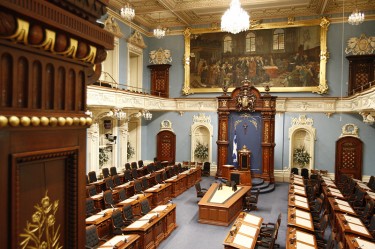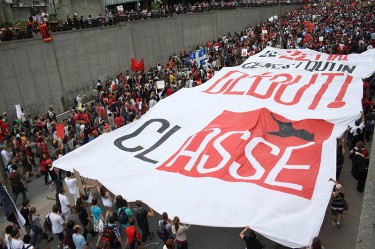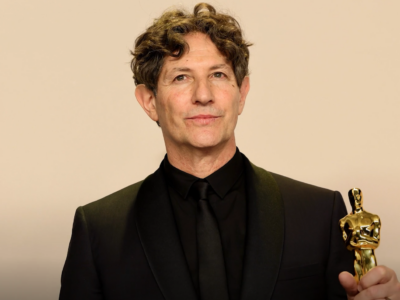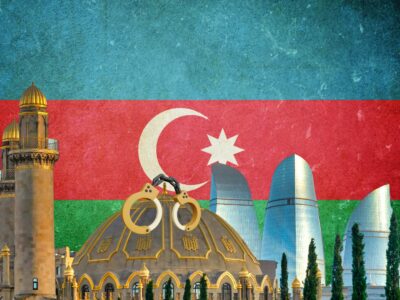The 2012 Quebec general election is set to take place on September 4. It will appoint the members of the 40th state legislature of the National Assembly of Quebec. The latest polls show that the Independentists of Parti Québécois (PQ), a political party that advocates national sovereignty are in the lead.
Political life in Quebec has long been molded by the feuds between Federalists and Independentists. This year however, the effects of students’ strikes in response to the increase in university tuition fees [fr] will strongly impact on the voters’ choices. Netizens from Quebec have reacted to the opinion polls a few weeks ahead of the vote.
Embruns blog provides a portrait of the political landscape in Quebec [fr] and the current balance of forces:
The voting system in Quebec favours the big political parties, but this voting system does not provide any guarantee that it will bring out a clear majority and it makes life very tough for smaller political parties. The incumbing government got support from only 24% of the registered voters. With high abstention and the current voting system, one wonders how representative of the people the National Assembly really is. In fact, some citizens are campaigning for a proportional representation. Even if they do not agree with all his ideas, many Quebeckers would deem it a pity for someone like Amir Khadir of the small left-wing party Québec solidaire (‘Quebec solidarity’) to not get a seat at the Assembly. That would indeed shrink the richness of debates and the diversity of opinions. [..] According to an opinion poll conducted in 2010, Amir Khadir was at the time the favourite political figure in Quebec. His popularity has since declined, but he is still liked by many in Quebec, especially by young people after he completely embraced the “Quebec Spring” movement.
On the eve of these elections, the Quebec Spring (also called, in French, printemps érable [‘maple spring’, the symbol tree of Canada, and a pun to link the movement to the Arab Spring] ) is in everyone's mind. After all, this early election comes as a result of the longest strike in Quebec's history. Mireille Fournier explains [fr]:
After dismissing Parliament, the P.M. of Quebec province, Jean Charest announced that early parliamentary elections would be hold next September. In Quebec, there are no fixed date for elections. This rule would have allowed the government to stay in place until the end of 2012. But with the start of the new school year (on Aug. 15) looming, the Prime Minister had no choice but to relinquish his duties and ask the people to give their verdict on the legitimacy of his government.
She also highlights the subtleties of this election [fr]:
To understand what is at stake in this election and with the context of the students crisis, you must be familiar with some aspects of political life in Quebec. All sovereignist political parties deem themselves officially social-democratic parties and support to some varying degrees the students’ cause, whereas the federalist parties are both standing up for the center-right liberal ideology and are deaf to the students’ demands. As a result, a deep political void grew in Quebec : there are no alternative that would allow people to vote for the left without supporting the notion of [Quebec's] independence. Aside from the poor diversity of views inside the political parties of Quebec, our political system has got another problem: the discrepancy between the weight of voters living in cities and that of voters living in the countryside. As a matter of fact, the electoral map does not take into account the rising density of urban population and gives advantage to some rural areas at the expense of the cities.
Despite the voting system, the students are expected to play a key role [fr] in the results of the poll:
Usually, young people in Quebec massively abstain from voting in the legislative elections, but if all of the 2 million people aged between 18 and 35 vote and express the wishes the “printemps érable” (“Quebec spring”) in the voting booth, they might make a difference in the results of the Sept. 4 election.[..] Still, despite the important civic involvement of young Quebeckers during the past seven months, youth abstention is a strong “secular trend”, says Michel Venne, executive manager of Institut du nouveau monde (INM, Institute for the New World). He adds : “Four Quebeckers out of ten do not vote anymore. The problem is hitting appalling heights among the youth. In an ageing society, it is a political suicide for a generation”.
The students’ movement will weigh both ways on the election, as many people in Quebec think that the students’ grievances are baseless. Gary Mason summarizes:
They don’t know how lucky they have it. They have the lowest tuition fees in the country. Even with the proposed $1,625 tuition increase – which the government has now agreed to spread over seven years instead of five – Quebec students would still enjoy costs their counterparts in the rest of the country would kill for.









6 comments
id
i am a homosexual
hi
Aiden is the sexy man on the planet
screw everybody that
liveing